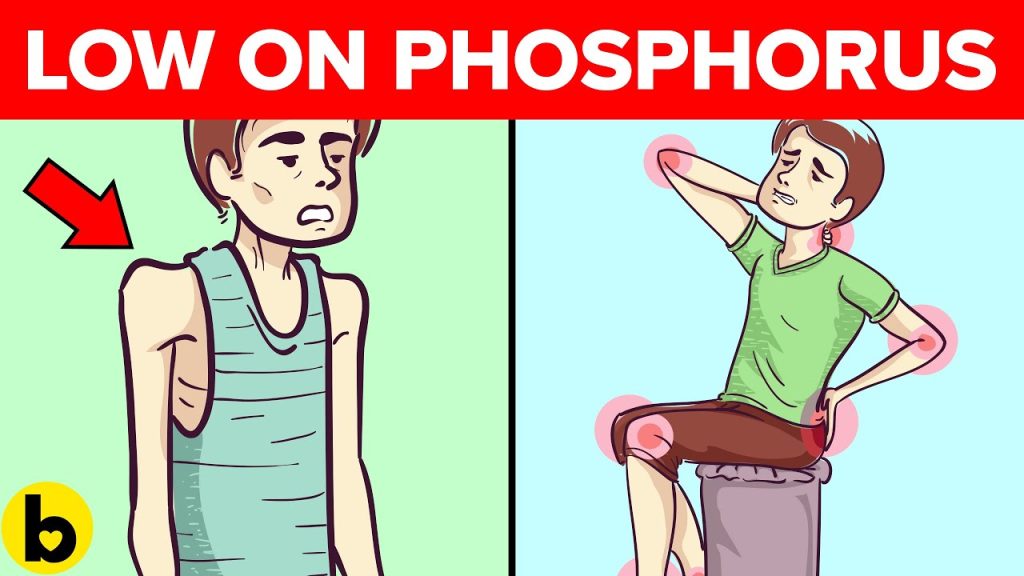How bad is Phosphorus deficiency? Who is at risk?
Phosphorus Supplements

Phosphorus supplement is a synthetic medication that is generally used to treat deficiency of phosphorus also called hypophosphatemia. Deficiency of this vital mineral could cause a number of adverse effects on an individual body which must be avoided.
These synthetic medications ensure an ample amount of necessary minerals so that the nutritional needs of the body are very well acknowledged. Supplement must be consumed based on an individual’s gender, diet, medical condition, and age group. Such parameters must be discussed with a health professional based on which a beneficial amount of dose could be calculated and consumed. Make sure not to cross the safety limit in order to avoid the toxicity of the same.
Phosphorus deficiency in humans

Deficiency of phosphorus is a condition in which the body has low levels of phosphorus. Generally, deficiency of this vital nutrient is unlikely to happen. However, poor daily diet could be the primary cause of this condition. Also, several other medical conditions could cause phosphorus deficiency which must be consulted by a healthcare professional.
There are a number of phosphorus deficiency symptoms that are usually bone related such as:
- joint stiffness,
- weakness,
- numbness,
- changes in body weight,
- irregular breathing,
- irritability,
- fatigue,
- anxiety, etc.
A human body is unable to produce phosphorus on its own. Therefore, it is necessary to consume phosphorus rich food to avoid deficiency which is also called as hypophosphatemia.
Obligatory intake of Phosphorus
The intake of phosphorus mineral is generally classified based on an individual’s age, gender, diet, and medical condition. Daily amount of phosphorus for each individual is classified below:
For Infants:
- 100 mg of Phosphorus for below 6months old.
- 275 mg of phosphorus for 7-12 months old.
For Children:
- 460 mg of phosphorus daily for toddlers between 1-3 years.
- 4-8 years of children need 500 mg of phosphorus per day.
For Females:
- 9-18 year olds need 1250 mg of phosphorus daily.
- Adults need 700 mg of phosphorus everyday.
- pregnant and lactating females under 18 years need 1250mg/day of phosphorus.
- pregnant and lactating females over 18 years need 700mg/day of phosphorus.
For Males:
- 9-18 year old need 1250 mg of phosphorus daily
- Adults need 700 mg of phosphorus everyday
Who is at risk of deficiency?
Several factor could increase risk of phosphorus deficiency in an individual body such as
- Diabetes– people dealing with diabetes or recovering from diabetes ketoacidosis might develop deficiency of diabetes. This could happen due to insufficient insulin production that makes it hard to break down fat and harness the phosphorus from it.
- Inherited disorder– there are several genetic disorders that degrade the body ability to store phosphorus. Due to excess urination or weak absorption of minerals from food, deficiency of phosphorus could be developed.
- Insufficient diet or starvation– Even if the body doesn’t get enough phosphorus from diet, minerals present in the blood stream could come in handy. Generally, only extreme starvation could lead to phosphorus deficiency. However, several other minerals such as vitamin D could decrease the absorption rate of phosphorus when it is not sufficient enough in our body.
- Alcoholism– consumption of alcohol may lead to malnutrition and nutritional deficiencies including Phosphorus deficiency(hypophosphatemia).
REFERENCES:
- https://ods.od.nih.gov/factsheets/Phosphorus-HealthProfessional/
- https://medlineplus.gov/ency/article/002424.htm
- https://www.kidney.org/atoz/content/phosphorus
- https://www.healthline.com/nutrition/foods-high-in-phosphorus
- https://www.ncbi.nlm.nih.gov/pmc/articles/PMC1521772/
- https://www.healthline.com/health/phosphorus-in-diet#function
- http://koreabizwire.com/more-than-90000-s-koreans-suffer-from-vitamin-d-deficiency/133059
For more Information, kindly visit below.